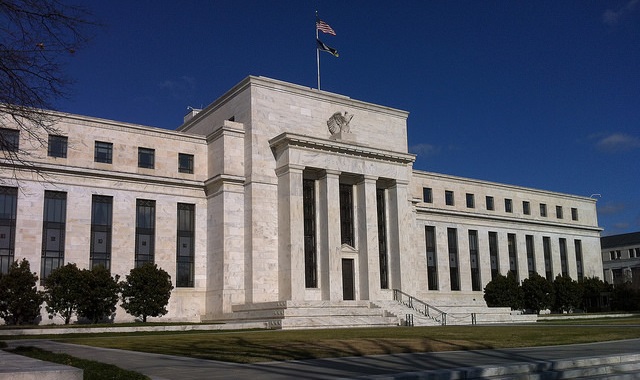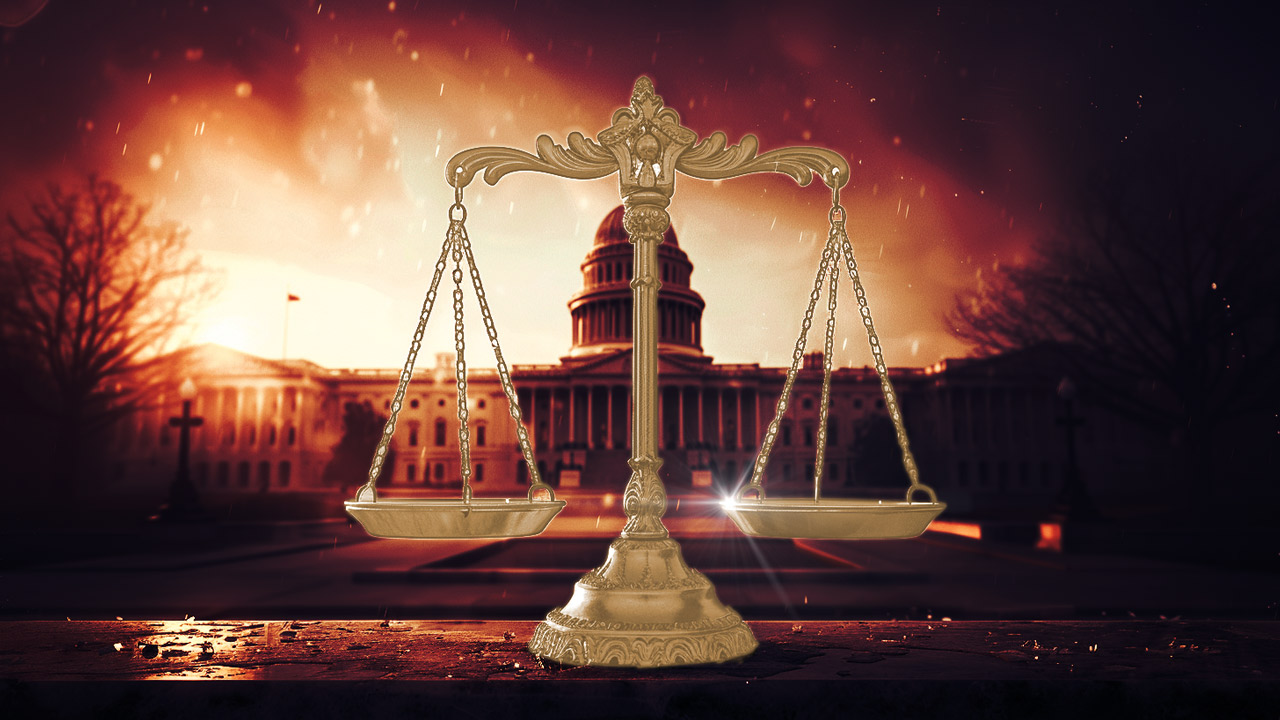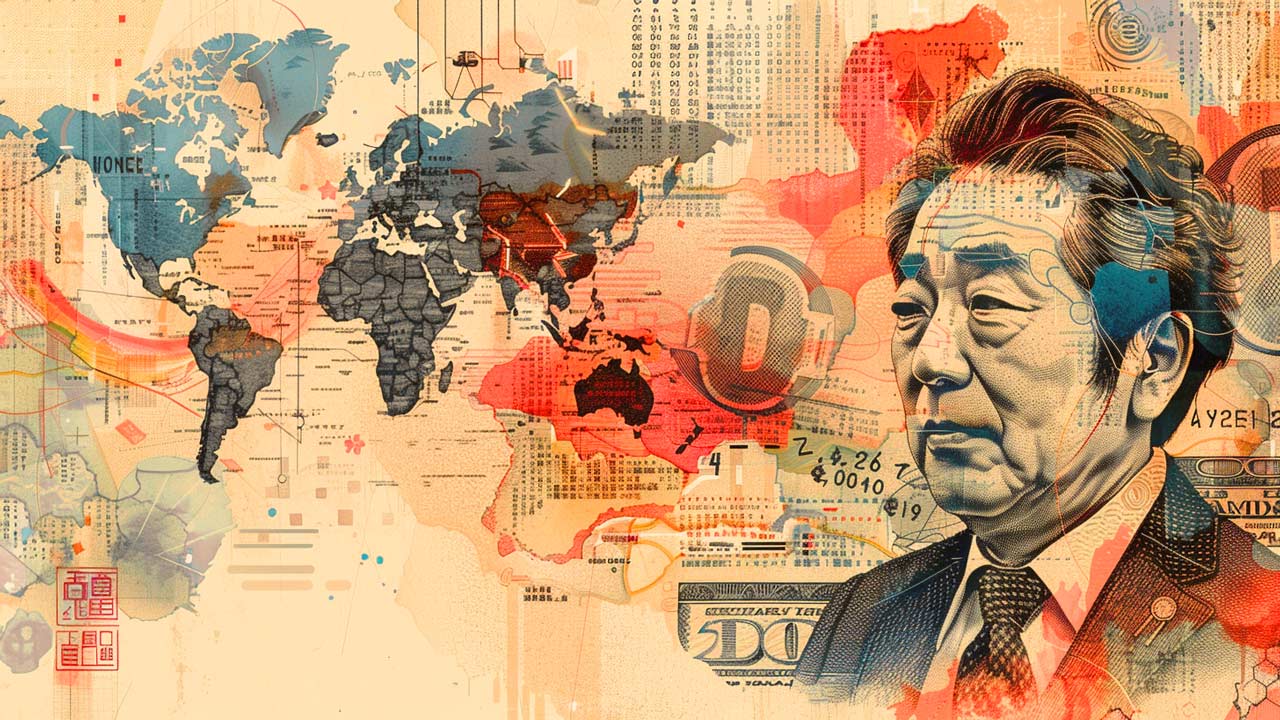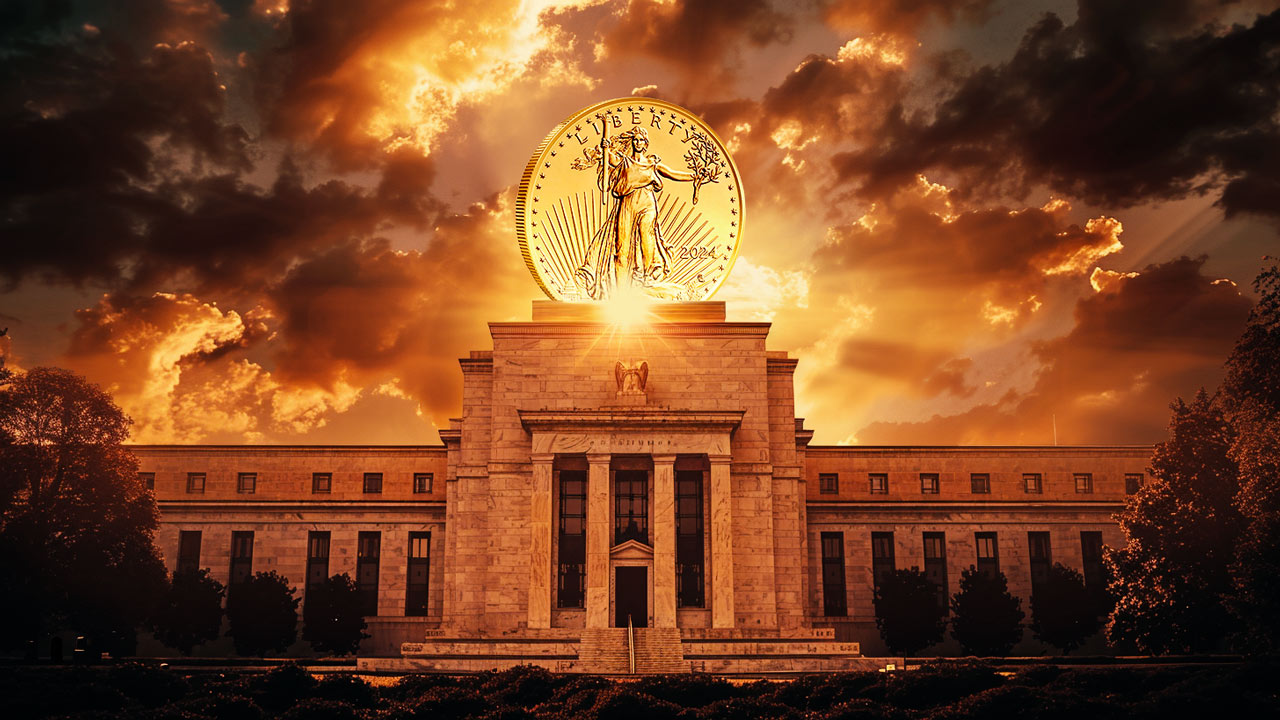The Pause Is on and Now the Mainstream Is Starting to Talk Interest Rate Cuts
Right after the last Federal Reserve Open Market Committee meeting, Peter Schiff said the “Powell Pause” won’t be enough to save the stock market and head off a recession. He said ultimately, the central bank would have to cut interest rates and launch another round of quantitative easing.
Well, it seems the mainstream is starting to catch up with Peter’s thinking. Yesterday, Bloomberg ran an article asserting that “instead of pausing, the central bank may need to start cutting interest rates to avoid a recession.”
After the Jerome Powell indicated that the pause was on during the last FOMC meeting, Peter said it wouldn’t be long before the Fed would pivot toward rate cuts. He said it was inevitable because the economy is hooked on easy money and you can’t just take the drug away.
I think that soon the markets are going to be demanding a lot more from the Fed than just a cessation of rate hikes and a commitment not to shrink the balance sheet. I think what the addicts are going to require is going to be more quantitative easing and a return to zero, and that is exactly what the Federal Reserve is going to provide once it realizes that’s what’s necessary.”
The Bloomberg article by Lakshman Achuthan and Anirvan Banerji makes a similar assertion, arguing that “first, the cyclical slowdown in growth that precipitated the plunge in stocks in the fourth quarter isn’t about to end. Second, everyone seems to have forgotten that monetary policy impacts economic growth and inflation with ‘long and variable lags.'”
Removing the risk of a recession and sparking a renewed acceleration in economic growth – never mind reigniting inflation pressures – will require much more than the doctrine of primum non nocere, meaning first, do no harm. The Fed would actually need to start a rate cut cycle.”
Peter said even if the Fed does turn to rate cuts, and QE, it’s not going to work. A recession is a done deal and another infusion of easy money will unleash inflation and a dollar crisis.
The Bloomberg article also asserts that it may be too late to avert a recession, although for different reasons. Achuthan and Banerji say the Fed waited too long.
Even if [the rate cut cycle] happened in short order, Milton Friedman’s observation that ‘monetary actions affect economic conditions only after a lag that is both long and variable’ virtually guarantees that the economy wouldn’t feel much of an impact this year. Recall that, despite the Fed rate cut cycles starting in January 2001 and September 2007, recessions began two and three months later.”
There’s another parallel between what Peter has been saying and this Bloomberg article. They both pinpoint the same reason for the Fed’s sudden dovish turn.
Keep in mind, as recently as September, Jerome Powell was talking about multiple rate hikes in 2019 and insisted that the balance sheet reduction plan was on “autopilot.” So, what changed in a few short months? As Peter said, nothing really changed in the economy. It was all about the stock market.
Yes, we had a government shutdown; the government shutdown is over. Not that big a deal. I mean, there has been weak economic data, but there’s been weak economic data that the Fed has been ignoring the entire time … The only thing that’s really changed between the September meeting and today is a bear market in stocks. The bear market that happened in the fourth quarter of last year and the acceleration of the downtrend that accompanied the last rate hike the Fed delivered in December. That’s the only substantive difference between now and then. And that’s the only reason the Federal Reserve has done a complete 180 when it comes to monetary policy.”
And from Bloomberg:
In fact, the Fed’s dovish about-face was predictable. After all, it was a reaction to the 14 percent plunge in the S&P 500 Index during the fourth quarter, triggered by the market’s belated realization that economic growth was slowing amid concern that the Fed was exacerbating the problem with its intent to keep raising rates.”
Of course, Achuthan and Banerji are drawing their conclusions from a vastly different economic point of view than Peter. They appear to support all of this Federal Reserve intervention into the economy. They seem frustrated that the central bank hasn’t been aggressive enough. And they seem to ultimately believe in the efficacy of this monetary central planning. But it’s interesting that their worldview leads them to call for exactly what Peter has been predicting all along.
And it’s also interesting to note the hint of bearishness entering into the mainstream discussion. Achuthan and Banerji, at least, seem to think it might be too late.
If the US slowdown continues until the opening of a recessionary window of vulnerability, within which almost any negative shock would trigger recession, it will be too late for the Fed to head off a hard landing, as it was before the 2001 and 2007-09 recessions.”
Get Peter Schiff’s most important Gold headlines once per week – click here – for a free subscription to his exclusive weekly email updates.
Interested in learning how to buy gold and buy silver?
Call 1-888-GOLD-160 and speak with a Precious Metals Specialist today!





 What is Nvidia? If you’re a committed gamer the question may sound like nonsense. Nvidia, which was founded in 1993, is a tech company that makes GPUs and other products. It originally specialized in making products for the video game industry, that assisted in 3D rendering. If you were a committed gamer, you probably owned their products. If you weren’t, you might not have heard of them.
What is Nvidia? If you’re a committed gamer the question may sound like nonsense. Nvidia, which was founded in 1993, is a tech company that makes GPUs and other products. It originally specialized in making products for the video game industry, that assisted in 3D rendering. If you were a committed gamer, you probably owned their products. If you weren’t, you might not have heard of them. With the AI boom and green energy push fueling fresh copper demand, and with copper mines aging and not enough projects to match demand with supply, the forecasted copper shortage has finally arrived in earnest. Coupled with persistently high inflation in the US, EU, and elsewhere, I predict the industrial metal will surpass its 2022 top to reach a […]
With the AI boom and green energy push fueling fresh copper demand, and with copper mines aging and not enough projects to match demand with supply, the forecasted copper shortage has finally arrived in earnest. Coupled with persistently high inflation in the US, EU, and elsewhere, I predict the industrial metal will surpass its 2022 top to reach a […] America’s trust in its institutions has rapidly eroded over the past 20 years. We have a lower level of trust in our judicial system and elections than most European countries. Some of this is natural, as Americans are uniquely individualistic, but much of it arises from repeated government failures.
America’s trust in its institutions has rapidly eroded over the past 20 years. We have a lower level of trust in our judicial system and elections than most European countries. Some of this is natural, as Americans are uniquely individualistic, but much of it arises from repeated government failures. Decades of negative interest rate policy in Japan have ended. That could mean the end of the $20 trillion “yen carry trade,” once one of the most popular trades on foreign exchange markets, and a chain reaction in the global economy. The yen carry trade is when investors borrow yen to buy assets denominated in […]
Decades of negative interest rate policy in Japan have ended. That could mean the end of the $20 trillion “yen carry trade,” once one of the most popular trades on foreign exchange markets, and a chain reaction in the global economy. The yen carry trade is when investors borrow yen to buy assets denominated in […] With a hot CPI report casting a shadow of doubt on the likelihood of a June interest rate cut, all eyes are on the Fed. But they’ve caught themselves in a “damned if they do, damned if they don’t” moment for the economy — and the news for gold is good regardless.
With a hot CPI report casting a shadow of doubt on the likelihood of a June interest rate cut, all eyes are on the Fed. But they’ve caught themselves in a “damned if they do, damned if they don’t” moment for the economy — and the news for gold is good regardless. 